- About

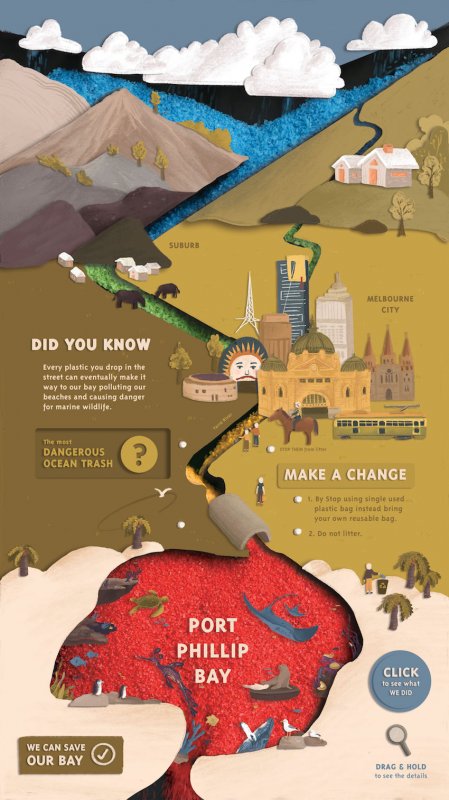 We can save our bay, Belinda Sugianto, 2019 Water studio
We can save our bay, Belinda Sugianto, 2019 Water studio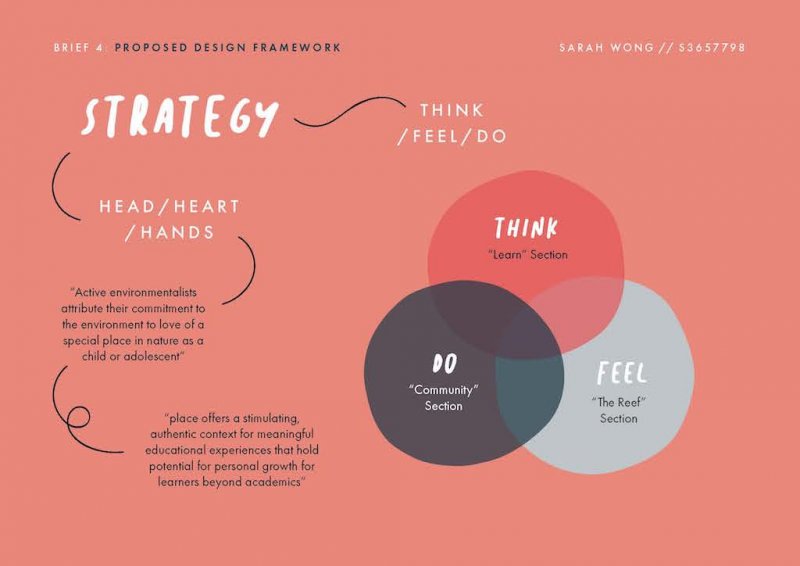 Schooled, Sarah Wong, 2019, Water studio
Schooled, Sarah Wong, 2019, Water studio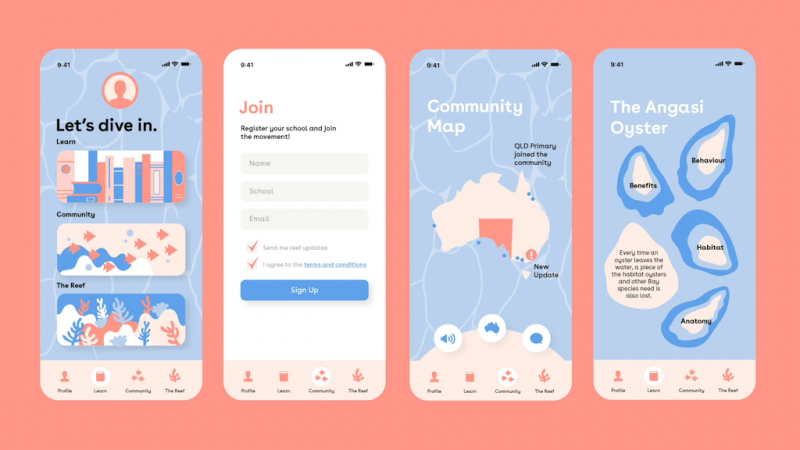 Schooled, Sarah Wong, 2019, Water studio
Schooled, Sarah Wong, 2019, Water studio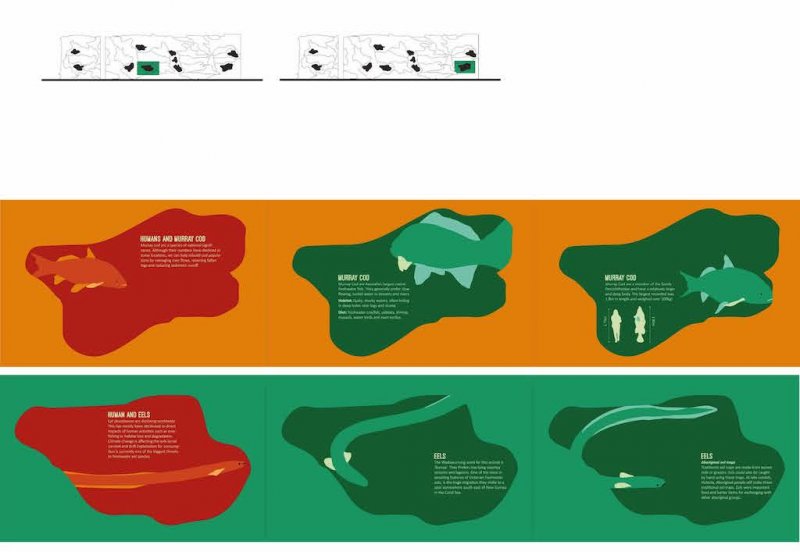 Fresh Water, Michelle Xie, 2019, BayLove studio
Fresh Water, Michelle Xie, 2019, BayLove studio 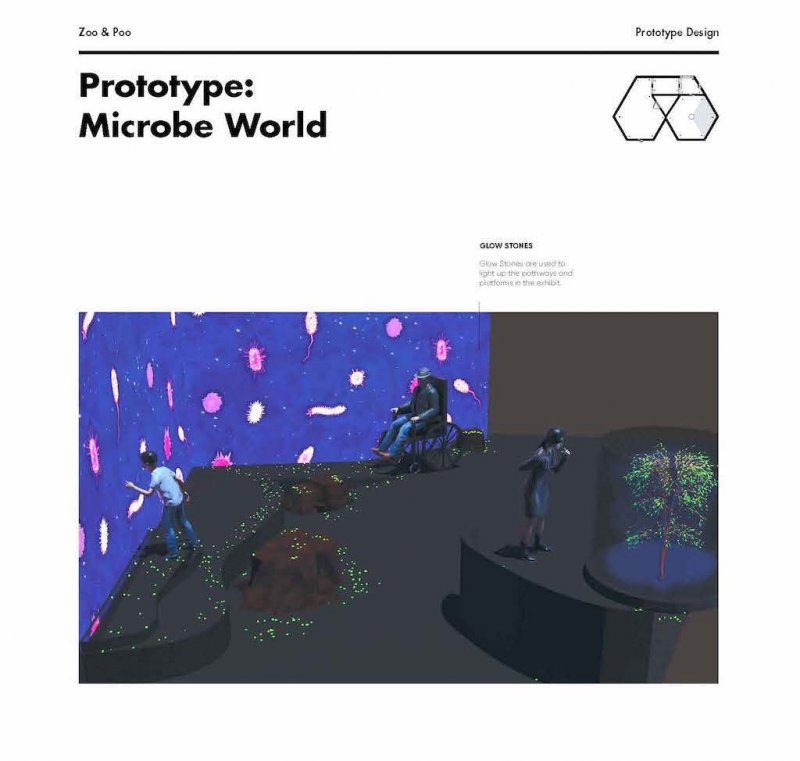 Microbe World, Kristen Carless, 2015, Zoo Poo & You studio
Microbe World, Kristen Carless, 2015, Zoo Poo & You studioLife Aquatic
—Tania IvankaFUTURES
*See myTimetable for Room & TimeStudio Inquiry
The Victorian Fisheries Authority's, Marine and Freshwater Discovery Centre (MFDC), in Queenscliff provides education and eco-tourism services about the plants and animals that inhabit our coast and marine environment. At the heart of the Victorian Fisheries Authority's strategy is the need to achieve collective responsibility, stewardship and custodianship among stakeholder groups (commercial, aquaculture, recreational and Indigenous fishing sectors) and the community generally. During the current Covid-19 epidemic, MFDC had to close their doors to school groups. While restrictions in Australia are currently easing, physical access to MFDC in the immediate future is likely gradual or limited. During lock down many museums and galleries offered virtual access to venues with varying degrees of success. Our task is to develop digital interpretive and educational experiences that provide distance engagement with schools, but which also break beyond the confines of that screen interface to provide memorable educational experiences.EngagementEnvironmental communication research identifies that information is not enough to persuade people to change their behaviour. Design plays an important role by engaging people through emotion and values and deep understanding of ecological relationships that drive actions. Using systems thinking and interpretive design practice you will learn about marine life in Port Phillip Bay and explore how to engage and communicate with a selected audience in an ecological understanding of the intricate relationship of marine creatures to each other, environment and human beings. Research will be undertaken through virtual field trips, observations, reflection, cases studies, design prototype testing and development.Communication of knowledgeWe will use Interpretive and experience design as the key practices, and living systems and ecological thinking and mapping to support our understanding of environmental and ecological issues. Together these will support our capacity to communicate complex and invisible concepts to the audience.ActivitiesAssessment tasks are based on discussions of research, set readings and reflective making activities to support your engagement with studio theory and practice. The quality and depth of your design thinking will be impacted if you do not participate in these activities, so be prepared for regular readings, contributing to discussion and keeping up with work in progress milestones for feedback. Final designs will be digital interactions but should link to real world action or activity beyond the screen. You will develop and test concepts through rough digital prototypes and present your full digital design mock-up (primarily using software such as Adobe XD), accompanied by a detailed proposal outlining research, design frameworks and design intentions.AssessmentsThere are four assessment tasks for this studio, the briefs are made up of a range of milestone deliverables that are interconnected and build upon each other. Reflective postcards based upon key readings will be distributed throughout Briefs 02 and 03. Brief 01: Studio Knowledge Object Brief 02: Research folio and minor (digital) interpretive design Brief 03a: Major Interpretive design research and initial prototype Brief 03b: Major Interpretive design proposal and final design mockupPre-Readinghttps://www.ecoliteracy.org/article/designers-challenge-four-problems-you-must-solve#Studio PartnerMarine and Freshwater Discovery Centre (MFDC) Queenscliff (TBC)Communities of PracticeDesigning ExperiencesLinks